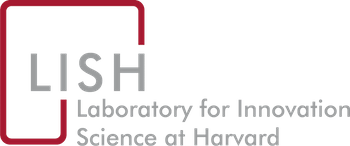The Laboratory for Innovation Science at Harvard (LISH) is spurring the development of a science of innovation through a systematic program of solving real-world innovation challenges while simultaneously conducting rigorous scientific research and analysis. LISH is a Harvard-wide research program led by faculty co-directors Karim Lakhani, Harvard Business School; Eva Guinan, Harvard Medical School; David Parkes, Harvard School of Engineering and Applied Sciences; and Kyle Myers, Harvard Business School; with support from the Institute for Quantitative Social Science. With our partners in both academia and industry, LISH conducts research on innovation within three areas of application: Crowdsourcing & Open Innovation; Data Science & AI Development; and Science of Science; addressing questions under three main research tracks: Incentives & Governance; Creativity & Problem-Solving; and Organization & Processes.
About
History
Crowd Innovation Lab | NASA Tournament Lab
Under the leadership of Professor Karim R. Lakhani, who specializes in distributed innovation and crowdsourcing at the Harvard Business School, the Crowd Innovation Lab began conducting pilot research projects in 2010. Soon thereafter, the NASA Tournament Lab at Harvard University — established as a joint initiative between NASA’s Center of Excellence for Collaborative Innovation (CoECI), Harvard Business School, and the Institute for Quantitative Social Science — was commissioned to design and field competitions or tournaments that create the best computer codes and data analytics solutions for NASA and other federal government agencies.
The purpose of this initiative was to develop challenges for software developers and data scientists to compete with each other for the prize and, upon completion of the competition, deliver a finished package at a comparatively low cost. This approach is often referred to as crowdsourcing. These community-based development approaches eliminate a critical dependency on the skills or schedule of any individual solution provider, instead allowing any provider who is knowledgeable, skilled, and available to supply a high-quality solution.
With the creation of the lab, researchers were able to conduct experiments into the optimal design parameters for innovation competitions of this type, facilitating the use of these tournaments within the public and private sectors. The foundation of the NASA Tournament Lab was a response to the growing value of crowdsourcing as a professional tool for technology procurement. It also reflected the efforts by NASA, recognized and supported by the U.S. government, to try new and innovative approaches to real-world software and algorithmic challenges. The mission of the lab was to cover both operation and exploration approaches to crowdsourcing.
